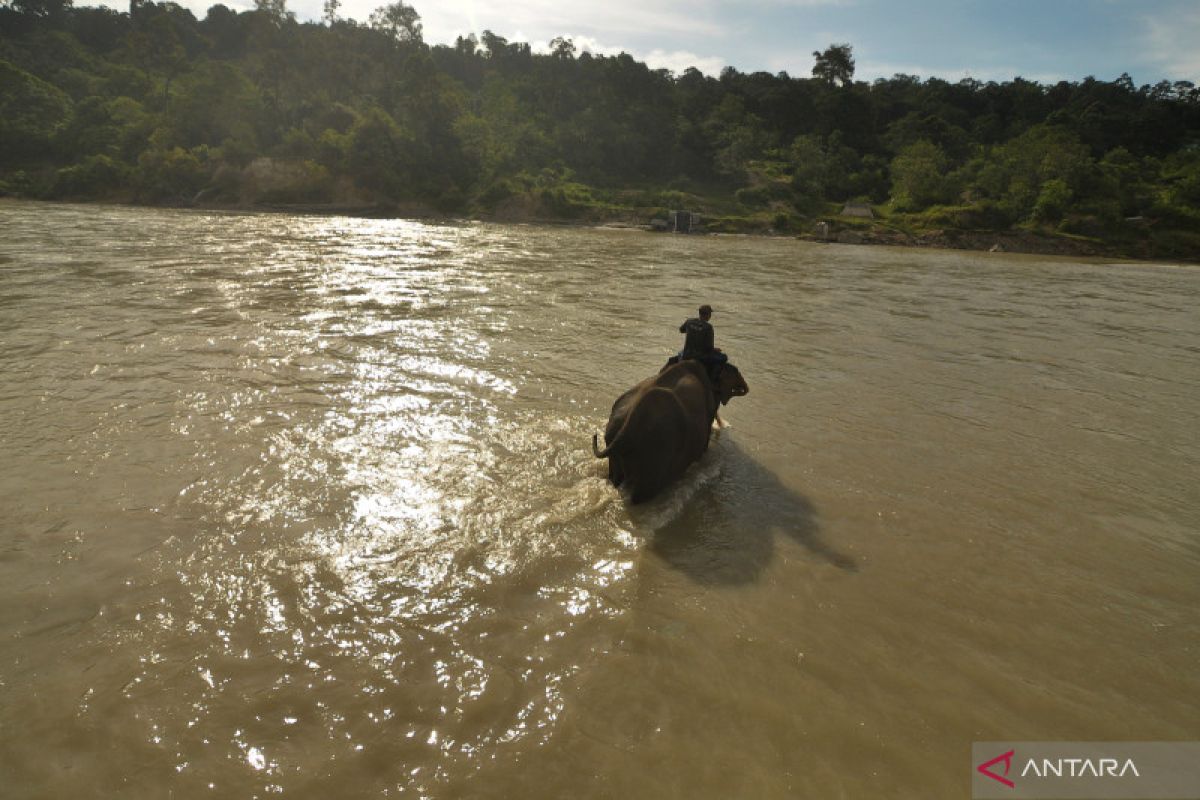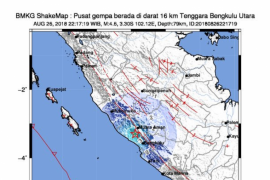To this end, continual efforts to raise public awareness about elephant corridor preservation are crucial as they could help mitigate human-elephant conflicts (HECs) in Bengkulu, the agency's acting head, Delfi Andra, said.
There is a need to maintain the elephant corridors in Seblat Landscape in view of the potential presence of Sumatran elephants in large numbers in the area, he informed in a press statement issued here on Tuesday.
At the same time, there may be people's or companies' activities near the area, which overlap with the elephants' habitat, he said, adding that elephant corridors would help prevent HECs.
In this regard, the BKSDA welcomes the research findings of Bengkulu University's Research and Community Service Institute on socioeconomic activities carried out by Seblat Landscape's settlers, he said.
The research findings published by the university could serve as one of the credible references for exploring ways to check the recurrence of human-wildlife conflicts in Bengkulu, he added.
As reported earlier, the BKSDA-Bengkulu Office has been aware of the serious threats to the habitat of wild elephants in the province since 2011.
The agency said that the habitat of these protected animals has been shrinking due to continuing encroachments into limited production forests in the Pasar Seblat area of North Bengkulu district.
The limited production forests that serve as the habitat of wild elephants have been hemmed in by commercial plantations and a residential area, according to the agency.
The Indonesian government has listed Sumatran elephants among the critically endangered mammals in the country.
According to figures published on the official website of the World Wildlife Fund (WWF), the population of Sumatran elephants is estimated to be about 2,400–2,800 individuals.
The world's leading organization on wildlife conservation and endangered species has pointed out that ivory can still be found in markets around Africa and Asia, as well as in the United States and Europe.
The WWF has also noted that poaching for the illegal ivory trade remains a serious threat to the lives of wild elephants in several countries. (INE)
Related news: Regional govt should report companies suspected of destroying forests
Related news: Two Sumatran tigers frequenting Bengkulu farms: police
Translator: Boyke LW, Rahmad Nasution
Editor: Atman Ahdiat
Copyright © ANTARA 2024










